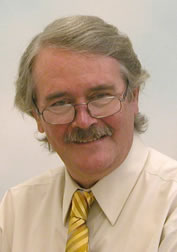 |
C O N F E R E N C E 29 April - 1 May 2010 |
Keynote Speach
 |
David Harrison |
University of Toronto Physics Practicals |
Over the past five years the Department of Physics at the University of Toronto has invested considerable resources in re-structuring the tutorials and laboratories of our largest 1st year course, which has about 1000 students. We have combined tutorials and laboratories into a new entity which we call Physics Practicals. The pedagogy is informed by the results of Physics Education Research, and features small teams of students working on conceptually-based guided-discovery activities. We have learned a great deal about implementing this sort of learning, both from our own efforts and from similar initiatives at Dickinson College, MIT, North Carolina State, the University of Maryland, the University of Washington, and others. Most of what we have learned is applicable to a much wider spectrum of educational contexts than just huge 1st year university physics courses. In this talk I will share some of what we have learned. After a brief introduction to Physics Education Research, I will discuss issues of learning team structure and size, the design of learning spaces, computerised data acquisition and analysis, time management, grading, the desirability of putting students into a state of cognitive dissonance, some common difficulties in using a Socratic model of teaching, and how to achieve “buy in” from both students and instructors. |
David Harrison is a Senior Lecturer in the Department of Physics at the University of Toronto. I received my PhD in Experimental High Energy Physics from the University of Toronto in 1972, and then spent a couple of years as a research associate. I felt that I was beginning to learn more and more about less and less, and that soon I would know absolutely everything there was to know about absolutely nothing. Meanwhile I was doing some teaching, and realised that I could more-or-less show that at least some students knew more about the subject of the course at the end than at the beginning. Further, I had no idea how this was happening. The question of how students learn is a much more interesting question to me than anything involving quarks, and has dominated my professional work. |